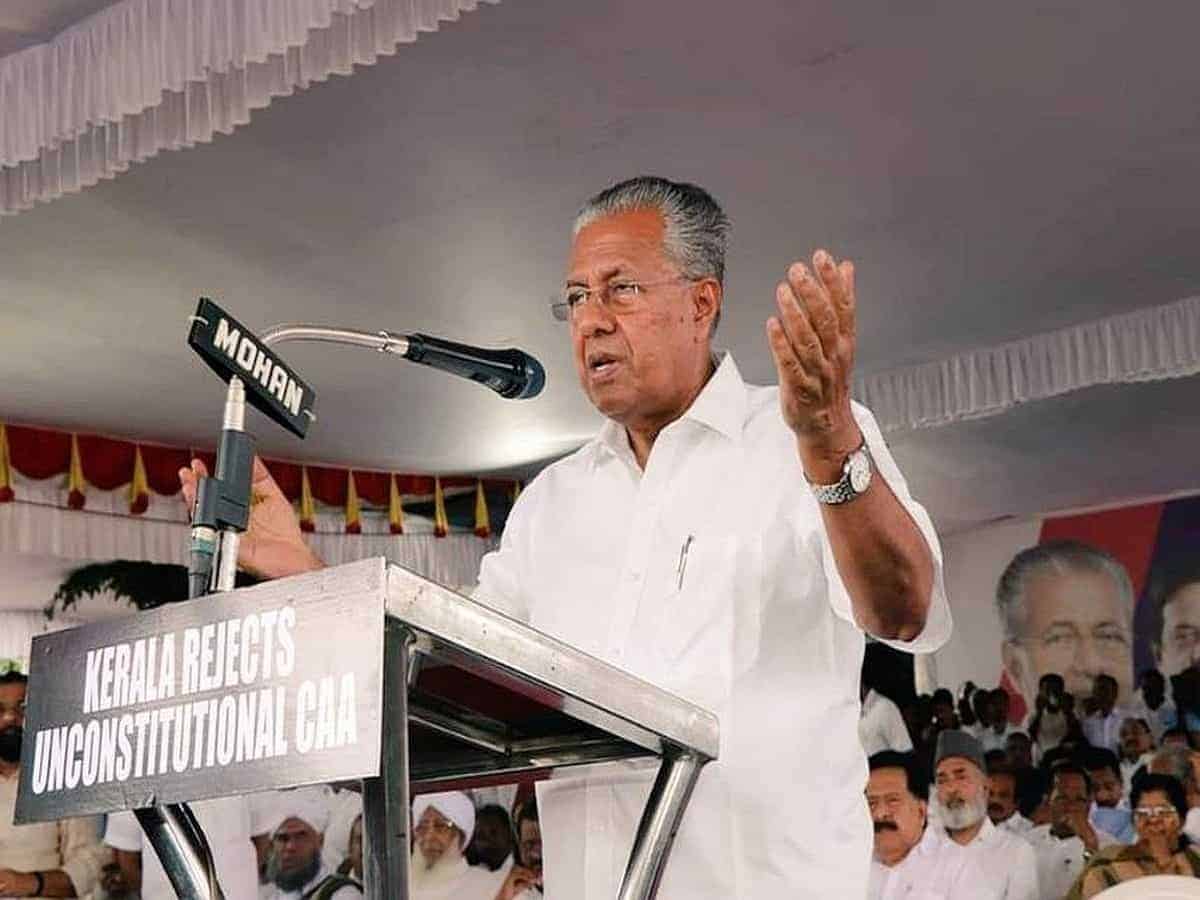Thiruvananthapuram: Kerala’s Pinarayi Vijayan issued an order staying all activities connected to the updation of the National Population Register (NPR) in the state on Tuesday. Chief Minister Pinarayi Vijayan also moved a resolution in the state Assembly demanding the scrapping of the controversial Citizenship Amendment Act (CAA).
“The Centre should come of its parochial and sectarian outlook and treat everyone equally,” Pinarayi Vijayan said, delivering his sharp message to the BJP-led national coalition after the assembly voted 138:1 in favour of the resolution that demands the Centre scrap amendments to the citizenship law and the National Population Register.
BJP opposes the resolution
O Rajagopal, the lone Bharatiya Janata Party lawmaker in the state assembly, was the only one to oppose the resolution, insisting that it was unconstitutional to diss a law enacted by Parliament and against the country’s federal polity. Much of his speech was, however, lost in the din and disruptions.
The move by Kerala CM Pinarayi Vijayan comes after West Bengal Chief Minister Mamata Banerjee also stayed all works on NPR in the state.
The National Population Register is a register of residents in the country which contains demography and biometric details. The Central government has decided to prepare the National Population Register between April 2020 and September 2020. The exercise will be conducted at the local, sub district, district, state and national levels. According to reports, the data collected during NPR will be used to roll out NRC in the country. In 2010, the National Population Register was first conducted and then updated five years later in 2015.
NRC in Assam
The NRC in Assam aimed at identifying illegal immigrants who entered the country after March 24, 1971. It not only requires one to prove their citizenship, but also their relationship with their ancestors, who need to be Indians. The exercise left out over 19 lakh people in the final register.
The controversial Citizenship Amendment Act aims to provide expedited citizenship to persecuted minorities of 6 religions – excluding Islam – from Pakistan, Afghanistan and Bangladesh. Protests have erupted across the country against the law which is widely viewed as discriminatory and anti-Muslim. Meanwhile, in the north east, protesters decry that the move will lead to an increase in migrant population and dilute their ethnic identities.

